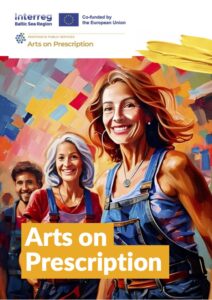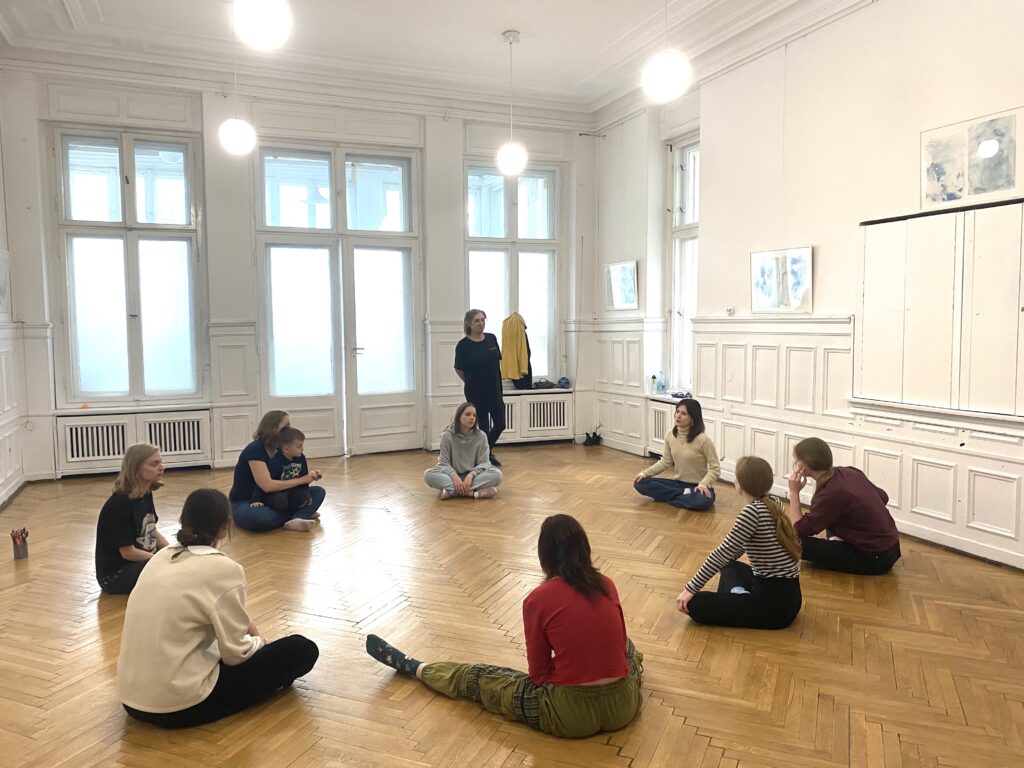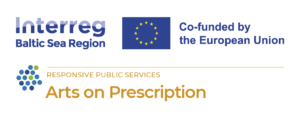“Arts on Prescription in the Baltic Sea Region” highlights the benefits of social prescribing in a fresh publication
As a non-clinical and non-pharmacological approach to mental healthcare, Arts on Prescription bridges two sectors that at first glance do not seem to have much in common: culture and health. This brochure introduces the Arts on Prescription model offering insights into its health benefits, economic advantages, and the unique features of the ‘Baltic model’ developed, tested, and evaluated in our Interreg BSR project.

Arts on Prescription is one example of the broader concept of social prescribing. In this approach, healthcare providers like general practitioners or community health workers refer patients to non-clinical services in their community to improve their health and well-being. This can include physical exercise, creative workshops, social clubs, community groups, skills training, etc. Arts on Prescription enables health professionals or other referral channels to connect individuals to a range of creative and participatory activities that promote their mental health and social inclusion. These activities can include painting, writing song texts, singing, dancing, sculpting, pottery, etc. The programmes are often initiated and carried out by local or regional public authorities in collaboration with cultural actors and referral channels. However, despite positive results from pilot programmes Arts on Prescription has yet to be expanded and integrated into mental health care on a large scale in our region.
The aim of the project is to demonstrate, through pilot programs across municipalities in the Baltic Sea Region, that this model is feasible and beneficial for both the cultural and the health sector, as well as cost-effective and transferable. According to the WHO report from 2019 “What is the evidence on the role of the arts in improving health and well-being” cultural engagement fosters social cohesion by providing opportunities for individuals to connect, interact, and share experiences, ultimately contributing to improved community health and resilience. When we talk about cost-effectiveness to support well-informed investment decisions by policy-makers, it is important to consider the costs and benefits of Arts on Prescription programmes. The potential benefits may include not only savings on clinical and pharmaceutical treatment but also improved well-being, which may lead to increased economic activity and productivity of individuals. This approach not only relieves pressure on healthcare systems, but engages new audiences in culture and arts, thus fostering social cohesion, enhancing resilience, and stimulating the economy.

Although there is growing interest in the field of AoP, a framework for setting up, coordinating, and incorporating this approach into existing healthcare systems and mental health care services is still lacking. The Interreg BSR project “Arts on Prescription in the Baltic Sea Region” aims to bridge this gap. Click here to read our latest brochure that introduces the various benefits of Arts on Prescription!
Cover photo: Museum on Prescription, AoP pilot, Cēsis, Latvia © Lelde Goba
Arts on Prescription receives financial support from the Interreg Baltic Sea Region and is co-funded by the European Union.
